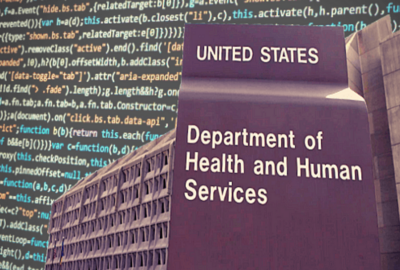Army IT Agency showing the value, potential of emerging technologies
Greg Garcia, the director of the Army's IT Agency, said the organization has been piloting a virtualized desktop initiative and almost is ready to move into ful...
wfedstaff | April 17, 2015 5:08 pm
The Army’s Information Technology Agency provides an assortment of products and services to the Defense Department throughout the Pentagon. At the same time, the organization is acting as a test bed internally as the first step to expanding the functionality of what the military services or offices can use to improve how they meet their mission.
Take ITA’s pilot to make network access easier and safer.
Greg Garcia, the director of the Army’s IT Agency, said the virtual desktop initiative (VDI) depends on the cloud to run applications and store data. He said ITA is partnering with the Joint Staff on the VDI pilot.
“We are trying to do a multi-tenant infrastructure that allows Joint Staff to manage an image and allows ITA to manage an image, while leveraging the synergy between the two organizations,” Garcia said. “It’s certainly been a learning opportunity. We’ve discovered a lot about how to make that efficient. One thing that is critical is profile unity about having the ability of having a teammate or mission partner to be able to log on at any point on the network and having his or her desktop appear with their files and access to their information.”
Garcia said ITA and the Joint Staff are about four months into the test, and he believes they have demonstrated that a VDI in the Pentagon is viable. He said ITA is preparing to move the VDI into full-production.
“The end goal is how do we think about our enterprise? For us, building an enterprise for the Joint Staff that lets the Joint Staff South in Hampton Roads and the Joint Staff North in the Pentagon have great harmony between the two locations in their interactions,” he said. “Now, do we expand to the entire Office of the Secretary of Defense staff or other services? That’s why we built it as a multi-tenant infrastructure so each organization could manage their image in a consolidated, vibrant, robust infrastructure to allow them that flexibility in the future.”
The ITA has been preparing for the move to VDI over the last few years. Garcia said about 70 percent of its infrastructure is virtualized.
Additionally, the move to a VDI will open the door to more broadly implement mobile devices and telework.
Award winning PII protection
Garcia said virtualizing the infrastructure, desktop and applications helps reduce the complexity of managing and securing the network.
“Right now, I have a little cube on my desk that basically has the network connection, an outlet for the keyboard, an outlet for the Common Access Card reader and the speakers, and that’s kind of it,” he said. “All the intelligence is in the cloud, which offers several key capabilities — time to patch, time to provision — you do that once on the server and the 200, 2,000 or 20,000 people who touch that server get it immediately.”
Garcia said the ITA is considering an acquisition later this summer for the full production of the VDI for the Joint Staff and a pilot with the Department of Army headquarters at the Pentagon.
Another focus area for ITA is cybersecurity. Garcia said his organization partnered with the Office of Secretary of Defense on an initiative to protect personal information.
ITA recently received second place in the Defense Security Enterprise Best Practices Awards program for the tool that automatically filters emails that contain personally identifiable information (PII) from being sent through the network unencrypted.
Garcia said ITA is talking with the Defense Information Systems Agency about expanding this capability across all of the military.
RELATED STORIES:
At Pentagon, lessons learned on data center consolidation
Military IT agency performs big mission with little fanfare
Copyright © 2024 Federal News Network. All rights reserved. This website is not intended for users located within the European Economic Area.
Jason Miller is executive editor of Federal News Network and directs news coverage on the people, policy and programs of the federal government.
Follow @jmillerWFED







